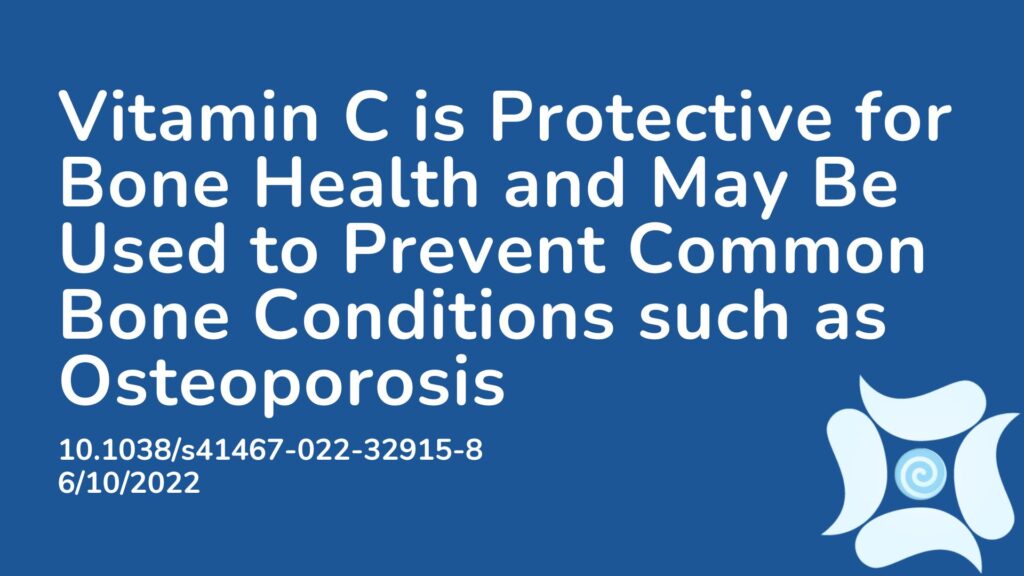Summary: Low bone mass (osteopenia) has a large impact on bone health and is a serious health concern. Almost half of all adults aged over 50 in the United States have low bone mass in the neck, spine or both, which is a significant risk factor for the degenerative disease osteoporosis. A vital component for protecting the health of bones is sufficient intake of micronutrients including vitamins A, C, and D3. Literature has shown that severe Vitamin C deficiency alone can lead to scurvy, which is characterized by critical deterioration of connective tissues associated with symptoms such as tooth loss and bone fractures due to fragile bones. Although scurvy is a relatively rare condition, confirmed cases are still reported in western countries, presumably from a shift towards ultra-processed foods and nutritionally incomplete diets. This paper explores and explains the role that vitamin C has in bone health but also the way Vitamin C impacts epigenetics. The authors also explore how Vitamin C might be an underutilised tool and how it can be used as a support for common bone-degenerating conditions such as osteoporosis.
Abstract:
Vitamin C deficiency disrupts the integrity of connective tissues including bone. For decades this function has been primarily attributed to Vitamin C as a cofactor for collagen maturation. Here, we demonstrate that Vitamin C epigenetically orchestrates osteogenic differentiation and function by modulating chromatin accessibility and priming transcriptional activity. Vitamin C regulates histone demethylation (H3K9me3 and H3K27me3) and promotes TET-mediated 5hmC DNA hydroxymethylation at promoters, enhancers and super-enhancers near bone-specific genes. This epigenetic circuit licenses osteoblastogenesis by permitting the expression of all major pro-osteogenic genes. Osteogenic cell differentiation is strictly and continuously dependent on Vitamin C, whereas Vitamin C is dispensable for adipogenesis. Importantly, deletion of 5hmC-writers, Tet1 and Tet2, in Vitamin C-sufficient murine bone causes severe skeletal defects which mimic bone phenotypes of Vitamin C-insufficient Gulo knockout mice, a model of Vitamin C deficiency and scurvy. Thus, Vitamin C’s epigenetic functions are central to osteoblastogenesis and bone formation and may be leveraged to prevent common bone-degenerating conditions.
Article Publication Date: 6/10/2022
DOI: 10.1038/s41467-022-32915-8



